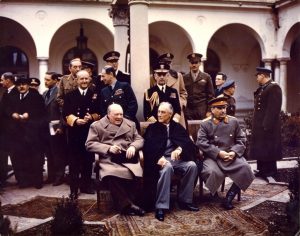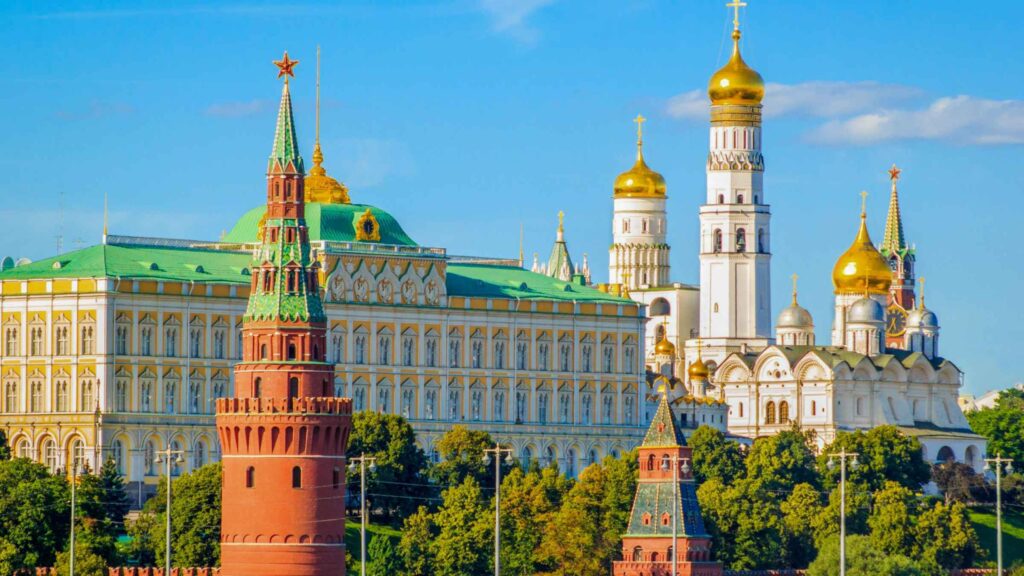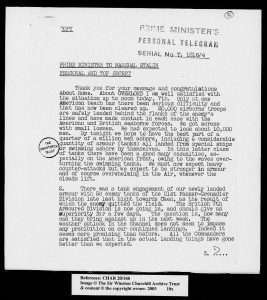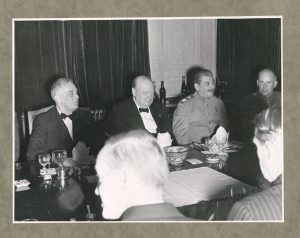
Bulletin #178 — Mar 2023
Red Herrings

The Kremlin, Moscow
February 26, 2023
Finest Hour Extra: Depictions of Churchill in Russian Propaganda
By YURIY UMANSKY
The news media in Russia past and present has had much to say about Winston Churchill. It has also been in the habit of quoting what Churchill had to say about Russia. Not surprisingly, perhaps, many of the remarks attributed by Russians to Churchill have been completely phony. The current issue of Finest Hour explores the theme “Churchill and Russia.” Appropriately, it includes Leon Trotsky’s review of Churchill’s book The Aftermath followed by Churchill’s response to Trotsky. My own contribution to the subject is a detailed examination of Russian propaganda attacks on Churchill published online as a Finest Hour Extra. To read the complete story, please CLICK HERE.
Churchill famously attempted to “strangle Bolshevism in its cradle” following Russia’s Communist Revolution in 1917. He called Vladimir Lenin “a culture of typhoid.” Not surprisingly, the Communists had no warm feelings for Churchill. Trotsky called him “a champion of capitalist violence” eager to choke proletarian masses struggling for their freedom.
On October 15, 1920, Lenin, speaking to local deputies of the Moscow region, put a propaganda stamp on Churchill, “the greatest hater of Soviet Russia”:

2025 International Churchill Conference
For several years the British War Secretary Churchill has been using all ways, both legal and even more illegal from the point of view of English laws, to support the White movement against Russia, in order to supply them with military equipment. He is the greatest hater of Soviet Russia….
Russian rhetoric did not get any better at the other end of Churchill’s career. Following Churchill’s “Iron Curtain” speech in 1946—seventy-seven years ago this month—Stalin waited a couple of days to gauge world reaction before unleashing his propaganda machine with a series of blasts about Churchill including this one:
He was the instigator of an anti-Soviet campaign and the chief organiser of armed intervention against Russia. Since then he apparently has forgotten nothing and learnt nothing. During the war, while mortal danger threatened Britain, he pretended to be a friend of the Russian people, but the danger passed and Churchill again became himself. He now ventilates his true sentiments, which, during the war, he painstakingly concealed.
Russian attacks on Churchill continued into the 1950s. But the Soviets and their Putinist successors could not resist over-egging the pudding. Through the years, they have fabricated and circulated phony Churchill quotes and stories. In the full article, I take a look at some of these and the circumstances in which they have appeared.
Yuriy Umansky, a former journalist and Churchill’s biographacal researcher in Ukraine, now lives in Vancouver, B.C.
Subscribe
WANT MORE?
Get the Churchill Bulletin delivered to your inbox once a month.





